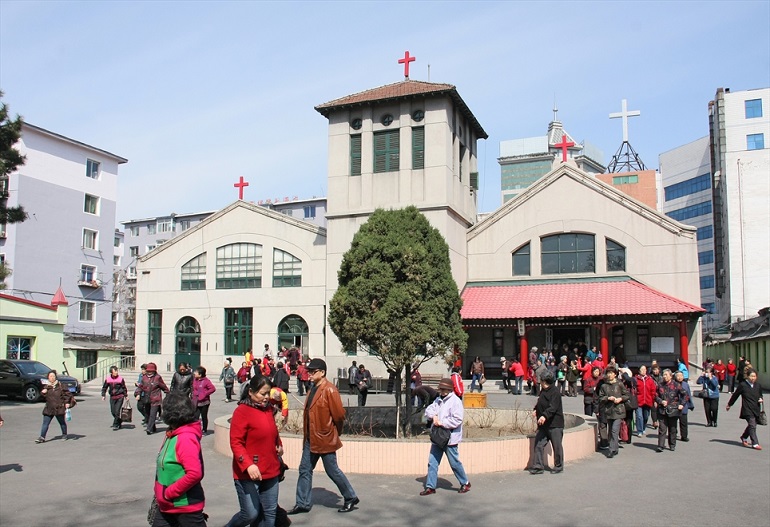
Churches in China are becoming more careful over who they let in to their buildings, as government pressure increases following the implementation of new religious regulations earlier this year.
Local authorities have been pressured to take action. In Guangzhou, for example, the capital of the southern province Guangdong, a local source told World Watch Monitor the authorities are “trying to stir up the larger more influential churches to see what reaction they will get from the people”.
As a result “churches have become more careful in who they allow in”, the source said. “Newcomers are first questioned by the pastor.”
The government is especially wary of “high profile” churches that have access to international networks, draw crowds of people and are very active.
“Churches that hold meetings in commercial buildings are targeted,” the source said. “The authorities close church venues and more landlords refuse to continue rental contracts with churches. Hence, these local churches are forced to return to house meetings.”
Lacking a place to meet, many churches have split into smaller groups. A girl in the Panyu district of Guangzhou told World Watch Monitor that she now attends two different meetings – one small and one larger – which she visits on alternate weeks to make it more difficult for the government to keep track of her movements.
Ongoing harassment
Two weeks ago, the Bible Reformed Church in Guangzhou was forced to stop its meeting for a third time in a month following a police raid, during which a number of Christians were arrested for questioning.
“We had just begun [the service] when 30-40 personnel from the State Food and Drug Administration, the cultural law enforcement brigade, as well as the police, came and raided the venue where we gather,” Pastor Huang Xiaoning told China Aid. “We had to stop our worship. Now, I have to go with them. People from the religious affairs bureau found me to question me.”
That same day local authorities had sent a notice ordering the church to stop its activities, having already issued previous notices to “stop illegal education”. The church was also fined 50,000 yuan (US $7,500) by the local religious affairs bureau.
“This is a new approach,” said World Watch Monitor’s source. “The local government is no longer demanding churches to register but chooses instead to issue a fine.”
One of the church’s staff members, who wished to remain anonymous, suggested one reason for the ongoing harassment could be the church’s alleged international connections.
Guangdong, because of its position beside the South China Sea, has become China’s economic powerhouse and attracts people from all over the world.
In 2017 Pastor Huang was arrested for organising a training course where “one of the speakers was from an overseas denomination which the government, in their understanding, perceives to be a ‘cult’ and which has international connections”, said the church worker, who was present when police interrupted the event.
‘Dark spirits’
The Bible Reformed Church has refused to officially register with the government, although the authorities have pressed for it since its inception in 2010, according to China Aid.
Many churches in China are reluctant to register as they are afraid the government will use the information they provide to control them.
Beijing has long sought the Sinicisation of religion, through which religions considered foreign to China, whose adherents may attract foreign support, are encouraged to become “more Chinese”.
“The coming years are likely to be very difficult for Christians throughout China, with even more oppressive laws on the agenda,” Paul Hattaway told Christian Today last month, at the release of his book describing Christianity’s growth in China despite attempts by the government to clamp down on religion.
“Many people have mistakenly thought that economic reforms equals the collapse of communism,” he said. “In fact, while China has accumulated wealth and emerged as a major player on the world stage, the underlying dark spirits of atheistic Marxism have not disappeared.”